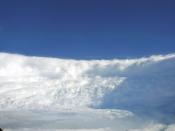4 | Ethics Challenged during disaster |
Ethics Challenged during disaster | 1 |
The New York Times Magazine article, "The Deadly Choices at Memorial" by Sheri Fink depict the aspects of a doctor's duty in disaster care were held to lower standards, thereby allowing murder to take place during the aftermaths of Hurricane Katrina. Sheri Fink, author, M.D; and PhD reported that Dr. Anna Pou, a surgeon who stayed to treat patients during the hurricane did not evacuate a selective group of patients she deemed too sick or too large to move thereby injected many of them with lethal combinations of Morphine, Versed, and/or Lorazepam. These lethal doses of sedatives and painkillers were found in several bodies following the request of Louisiana Attorney General's Office, Orleans Parish Coroner Frank Minyard investigate the cause of the deaths at Memorial Hospital (Fink, 2009, 24-27). Furthermore, many of the cases presented by the experts deemed the levels of medication given indicated homicide.
Though only four counts of second-degree murder charges were brought against Dr. Anna Pou, the grand jury never indicted her, thus multiple wrongful death civil suits have been brought against Dr. Pou for her actions in the events that took place after Hurricane Katrina. In essence, "First Do No Harm" is a moralistic oath doctors' take that should not be compromised despite circumstances that encompass a disaster. During disaster care, a doctor's moral obligation should not be held to a lower standard because of the presentations of the situation at hand; moreover, it should be raised to higher levels to allow countless lives to be saved, public reassurance and legislative laws put into place to protect patients during disasters from being euthanized.
Doctors' are trusted to "Do No Harm" and uphold great considerations to patients during tranquil environments. However, the same considerations...


